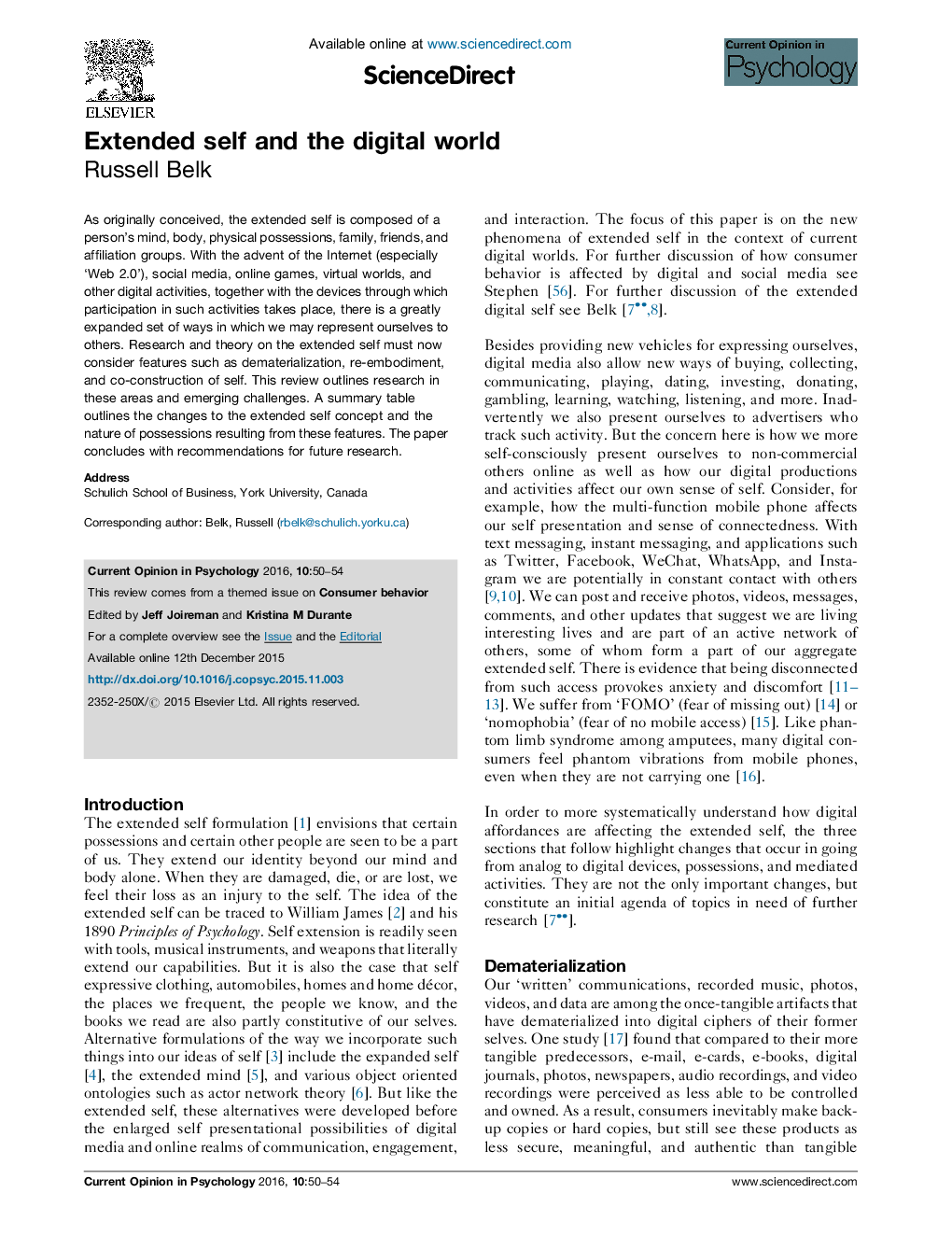| Article ID | Journal | Published Year | Pages | File Type |
|---|---|---|---|---|
| 879283 | Current Opinion in Psychology | 2016 | 5 Pages |
•Online affordances magnify the ways and media in which we can express identity.•Dematerialization leads to less attachment to digital possessions.•Re-embodiment in avatars increases self-representation beyond the body.•Co-construction of self takes place when others tag, comment or like us online.
As originally conceived, the extended self is composed of a person's mind, body, physical possessions, family, friends, and affiliation groups. With the advent of the Internet (especially ‘Web 2.0’), social media, online games, virtual worlds, and other digital activities, together with the devices through which participation in such activities takes place, there is a greatly expanded set of ways in which we may represent ourselves to others. Research and theory on the extended self must now consider features such as dematerialization, re-embodiment, and co-construction of self. This review outlines research in these areas and emerging challenges. A summary table outlines the changes to the extended self concept and the nature of possessions resulting from these features. The paper concludes with recommendations for future research.
